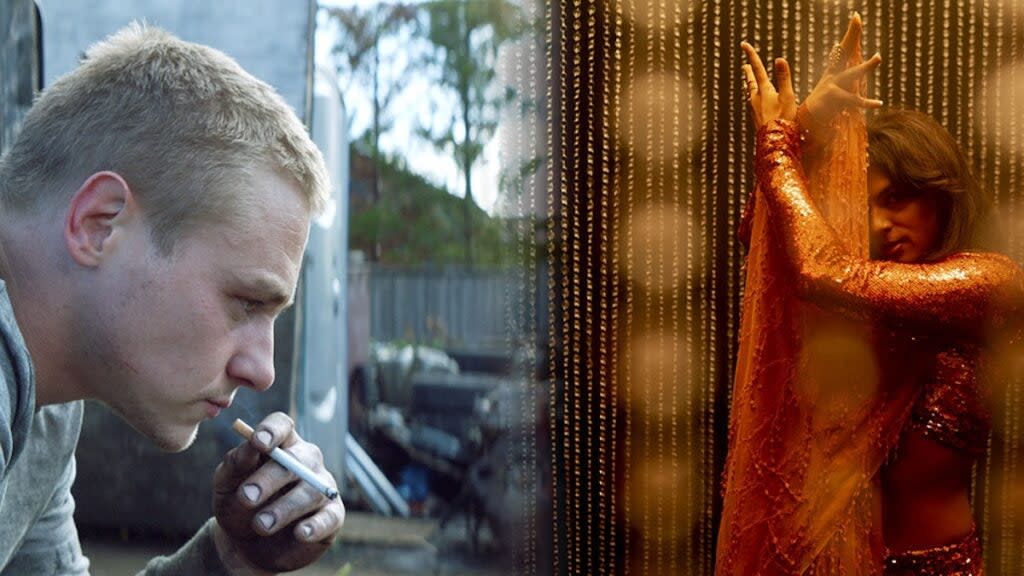‘Unicorns’ Review: Queer Romance Meets Culture Clash in Quiet Drama

Welsh-Egyptian director Sally El Hosaini had the opening night film at last year’s Toronto International Film Festival with “The Swimmers,” a Netflix drama about two would-be Olympic swimmers fleeing Syria for a chance to compete in Europe. She’s back at the festival a year later with “Unicorns,” codirected with James Krishna Floyd. It’s a quieter, less rousing drama that in some ways couldn’t be further from “The Swimmers,” but in other ways shares that earlier film’s determination to find moments of happiness and celebration in the midst of struggle.
“Unicorns” is a work designed to bring empathy for its two lead characters, a scruffy auto mechanic trying to raise a young son by himself and a British-Asian drag queen looking for moments of release in a life of hardship. At times it finds El Hosaini holding beats for too long, as she also did in “The Swimmers,” but it finds grace in the way it deals with individuals who can be desperate in their desire to feel as if they belong.
When we meet Luke (“X-Men” star Ben Hardy, who in this film might make you think of a younger, blonder Tom Hardy — no relation — even if they didn’t share a last name), he’s engaging in some frantic but fairly desultory sex in a field somewhere on the outskirts of London. Afterwards, he offers the young woman a ride home, and she brushes him off with a succinct, “Let’s just keep it casual.”
Luke has dinner alone at a little restaurant, then goes downstairs to use the bathroom. But when he hears music pounding nearby, he pushes open a door and finds himself in an underground club playing Asian dance music. He’s immediately fascinated by Aysha, a glamorous dancer who flirts with him and then takes him out back for a passionate kiss before he slowly realizes that Aysha is not the cisgender woman he was expecting.
His initial embarrassment turns to revulsion, but there’s something about Aysha — and about Luke — that breaks through his conditioning. Before long, Luke is making some extra money giving Aysha a ride to private “gaysian” parties where she makes a living in tips.
“What are you, a tranny?” he asks at one point.
“Don’t ever use that word again!” she snaps. “I’m a drag queen. My only pronouns are icon and legend.”
The film plays close and detailed attention to the rituals of these daily lives, whether it’s Luke’s hardscrabble existence as a mechanic or Aysha’s return every night to a dingy apartment where she strips off her wig, painstakingly removes her makeup and pulls out a Muslim prayer rug.
Aysha, it turns out, was born Ashig and is from a working class family in Manchester — where, her brother says, people are starting to talk. “It could be dangerous,” the brother says when he visits Aysha in the beauty supply shop where she works during the day (not in drag). “Just be careful.”
Aysha hardly needs to be warned, telling Luke, “I get death threats. All of us queens do.” She shows a text that reads, “DIE BITCH DIE!!!” and shakes her head at the despair that comes from being shunned by community and family. “There’s only ever two outcomes: Forced marriage abroad or jumping off a bridge.”
The movie throws in fights and frantic partying and plenty of melodrama, but its heart is in the quiet, melancholy conversations between Aysha and Luke, whose business arrangement deepens and edges toward romance with each new ride. “Would you have had sex with me on the night we met if I was a woman?” Aysha asks Luke at one point. “Yeah,” says Luke after a pause. “But you’re not.” The exchange could be played for maximum drama, but instead it’s understated, with the film finding its tone in its quietest moments.
The sadness at the heart of those conversations hangs over all of “Unicorns,” but El Hosaini and Floyd also insist on giving the characters moments of happiness even if we can be sure they won’t last. There’s a happy party montage, a happy amusement park montage, a satisfying reunion between Aysha and the mother who insists on thinking that it must be a new girlfriend making her son so happy.
It’s hardly a spoiler to say that the happiness doesn’t last, even as the filmmakers try very hard to sell that impossible vision after presenting abundant evidence to the contrary. Tonally, the film lurches from one extreme to another in its final stretches, though it finds its footing not in big confrontations but in gentle understanding.
Buoyed by the performance by Hardy and by newcomer Jason Patel as Aysha, “Unicorns” pleads for understanding but does it in a way that at its best is contemplative rather than histrionic. It’s a story of two people in a world that isn’t always welcoming, and it’s as simple and as complicated as that story can be.
“Unicorns” is a sales title at TIFF.
The post ‘Unicorns’ Review: Queer Romance Meets Culture Clash in Quiet Drama appeared first on TheWrap.

